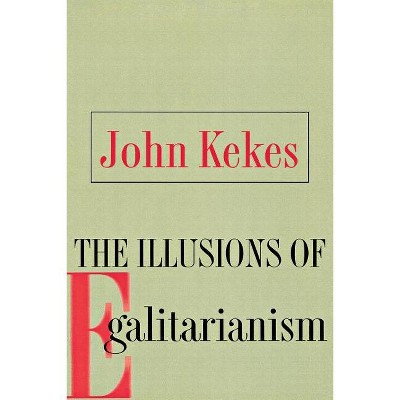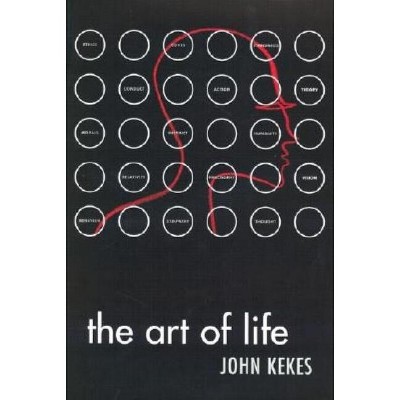About this item
Highlights
- In his recent book Against Liberalism, philosopher John Kekes argued that liberalism as a political system is doomed to failure by its internal inconsistencies.
- About the Author: John Kekes is Research Professor at the State University of New York at Albany.
- 256 Pages
- Political Science, History & Theory
Description
About the Book
In his recent book Against Liberalism, philosopher John Kekes argued that liberalism as a political system is doomed to failure by its internal inconsistencies. In this companion volume, he makes a compelling case for conservatism as the best...
Book Synopsis
In his recent book Against Liberalism, philosopher John Kekes argued that liberalism as a political system is doomed to failure by its internal inconsistencies. In this companion volume, he makes a compelling case for conservatism as the best alternative. His is the first systematic description and defense of the basic assumptions underlying conservative thought.Conservatism, Kekes maintains, is concerned with the political arrangements that enable members of a society to live good lives. These political arrangements are based on skepticism about ideologies, pluralism about values, traditionalism about institutions, and pessimism about human perfectibility. The political morality of conservatism requires the protection of universal conditions of all good lives, social conditions that vary with societies, and individual conditions that reflect differences in character and circumstance. Good lives, according to Kekes, depend equally on pursuing possibilities that these conditions establish and on setting limits to their violations.Attempts to make political arrangements reflect these basic tenets of conservatism are unavoidably imperfect. Kekes concludes, however, that they represent a better hope for the future than any other possibility.
From the Back Cover
Philosopher John Kekes argued in his book Against Liberalism that liberalism as a political system is doomed to failure by its internal inconsistencies. In this companion volume, he makes a compelling case for conservatism as the best alternative. His is the first systematic description and defense of the basic assumptions underlying conservative thought. Conservatism, Kekes maintains, is concerned with the political arrangements that enable members of a society to live good lives. These political arrangements are based on skepticism about ideologies, pluralism about values, traditionalism about institutions, and pessimism about human perfectibility.Review Quotes
A valuable contribution to political theory.... A challenging work.
-- "First Things"John Kekes's project has been to encourage others to be realistic about what it takes to make good lives for themselves in a troubled, flawed, and apparently contingent universe.
--Preston Jones, Cambridge School of Dallas "Touchstone"Kekes must be lauded for attempting to present a coherent and systematic defense of conservatism.
--Barry Alan Shain, Colgate University "Modern Age"Students with a serious interest in political theory and philosophy would certainly benefit from this slim volume, which... is likely to become a classic in its field.
-- "Choice"This is a book which... offers a reasoned and often astute defense of a moderate conservatism which deserves to be taken seriously, both by conservatives themselves and their critics.
--John Horton, Keele University, UK "Philosophical Investigations"About the Author
John Kekes is Research Professor at the State University of New York at Albany. He is the author of nine books, including Against Liberalism and Moral Wisdom and Good Lives, both from Cornell.
Shipping details
Return details
Trending Non-Fiction












